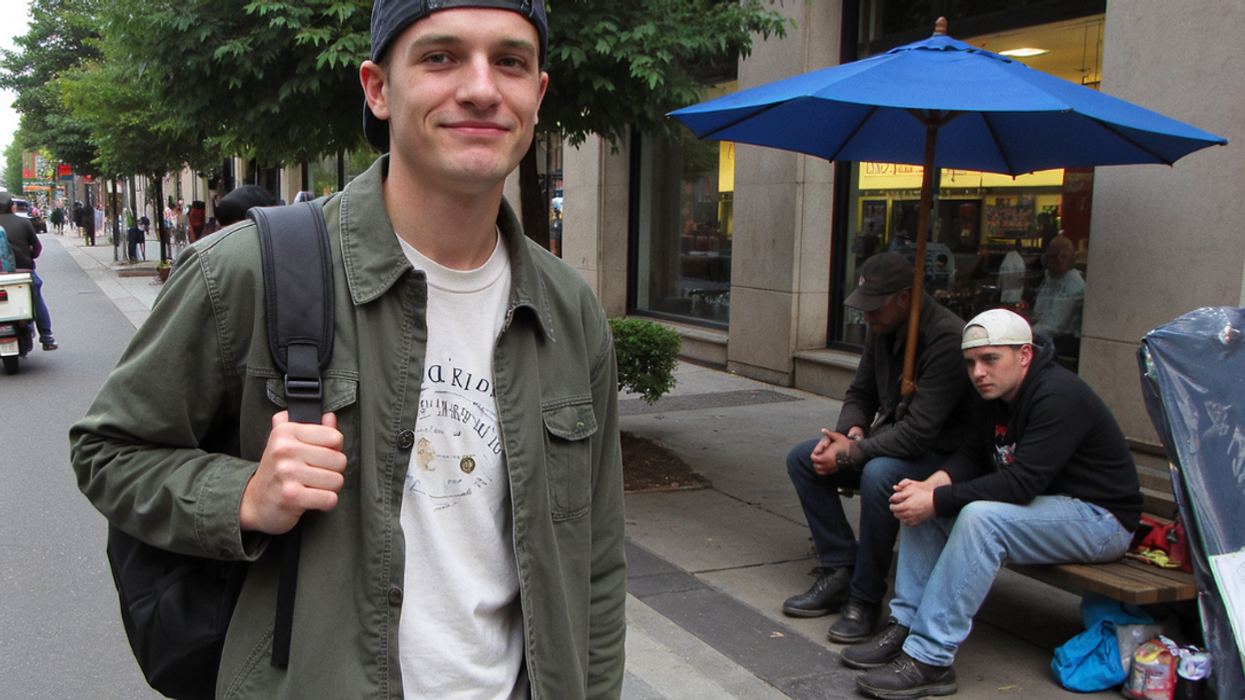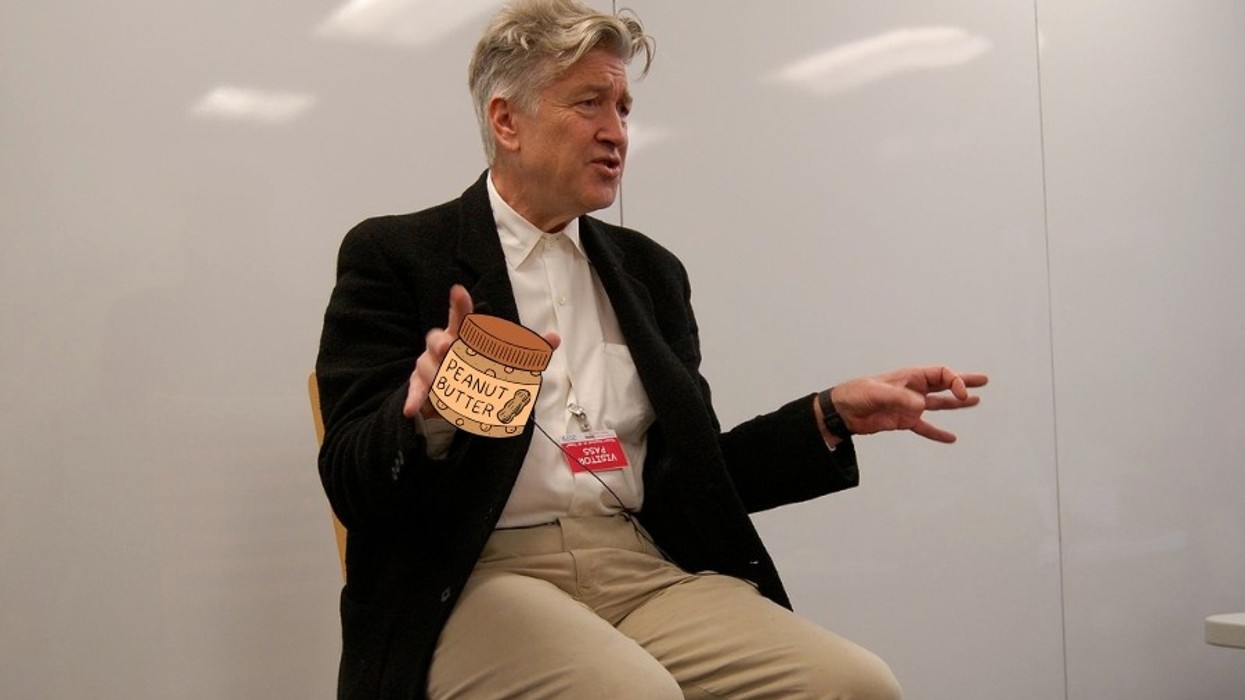This story is part of an ongoing campaign called the Alphabet of Illiteracy. By using letters themselves—the foundation of reading and writing—Project Literacy examines the ways illiteracy underpins some of the greatest challenges facing the world today. Below, we explore the letter Y for “Young Offenders”.
For 16-year-old boys in prison, joining a book club may not seem all that appealing. “Club” sounds like something a kid would go to. Even though they technically are kids, these boys have been tried as adults. They’re locked up for serious crimes, sometimes in solitary confinement, and they’re often behind in many grade levels, maybe even functionally illiterate. What could a book club do for them anyway?
If you ask Charlie, a former incarcerated youth from Washington D.C., he’ll tell you this book club changed his life. Charlie grew up in an impoverished Southeast neighborhood, and was convicted of armed robbery at age 16. For his entire 6-year sentence, Free Minds Book Club was there: offering him technical writing skills, a “clean” community of friends, outlets for healthy self-expression and a network that eventually helped him land a job after prison. “[Free Minds Book Club] never gave up on me,” says Charlie. “They still haven’t.”
Free Minds Book Club and Writing Workshop was founded in 2002. The organization focuses on rehabilitation and communication skill building for male teenage inmates Washington D.C. In its 14 years of operation, Free Minds has served approximately 1,000 youth charged as adults. They’ve also maintained a recidivism rate below 35%. This is impressive considering nationally, 75.9% of young offenders under the age of 25 re-offend within 3 years of their release.
The in-person group starts small. Boys in D.C. jail are invited to stop by the weekly meeting and offered memoirs, graphic novels and young adult fiction. Free Minds leaders begin meetings by opening to one part of a book and inviting those who have read to sum up the scene. They then ask everyone to share how they relate to the situations described. “It offers them a little distance,” says Free Minds Book Club Development and Communications Director, Julia Mascioli. “[They say] I’m talking about this character, not about me. Or I’m writing this poem: it’s about the poem, not about me.”
When it comes to their own writing, poetry is the medium of choice. “Writing poems was a way to express myself,” says Gary, a Free Minds member who was arrested at age 17 in connection to a shoot-out between rival gangs. Gary was supposed to go to college: he was a star athlete, with his pick of scholarship offers. Instead, he served seven years in prison, two of them in solitary confinement. “The type of poet I am, you have to read my entire poem to get the meaning of it and this made me feel like my voice was being heard,” he says.
With poetry, Free Minds members say they experience less pressure to master grammar and form traditional sentences. Members also like the chance to zoom in on particular moments. Some talk about what life was like growing up while others focus on what they hope for once released. Of the issues covered, overcoming violence is a huge theme in the poems: 100% of book club members know someone who has been shot. A member from Southeast D.C. says his neighborhood was so bad growing up, it was nicknamed “Little Vietnam”.
Once they turn 18, the boys leave the D.C. jail unit for minors. From there, they are sent to federal prisons nationwide to finish their sentence as adults, which means they end up everywhere from New York to North Carolina to Texas. “It [is] like getting thrown into the lion’s pit,” says Phil, a native of East Capitol Dwellings, who was arrested for gang activity at age 17. Phil was sent to California to serve the remainder of his 10-year-sentence. “You gotta get used to not seeing your family on a consecutive basis, versus them coming to the D.C. jail 2 times a week,” he says. The day Phil was released he took a greyhound back to D.C. His first stop was to see his family. His second stop was the Free Minds office.
Knowing the change in prison can be difficult, Free Minds staff and volunteers kick into high gear. They flood the boys’ mailboxes with newsletter discussion questions, books, birthday cards and postcards from Washington D.C. Those interested can also get handwritten feedback on their poems from D.C. community volunteers in the “On the Same Page” violence prevention program.
“Our guys are usually amazed someone who doesn’t know them took the time to read what they wrote and to respond to it,” says Julia. “It’s not uncommon for inmates to write about the loss of a loved one and for volunteers to respond by saying they felt a similar pain when someone they loved passed away.” The volunteers include educators, lawyers, therapists, and nonprofit professionals. They usually write words of gratitude, like thank you for sharing this with me or your voice and ideas matter, keep writing.
When jail time is up, Free Minds is waiting to welcome members back to D.C. with job readiness trainings and reintegration groups. The guys say their writings skills have come in handy in everything from resume writing to understanding the paperwork they are filling out to emailing supervisors and getting promotions. Some alumni have even been able to hire other members. For example, Gary – that former star athlete – has become a supervisor at Wagtime Pet Care and just hired a Free Minds member to join his team. Gary is also one of the Free Minds Poet Ambassadors, a group of alumni who give anti-violence and creative writing talks in the community. One of his favorite places to speak is his high school in Anacostia.
So far in 2016, 85% of Free Minds returners have obtained employment, enrolled in vocational programs, or gone back to school. As for their poetry, the club is proud to have written a book. Released by Shout Mouse Press, The Untold Story of the Real Me: Young Voices From Prison encompasses four years of writing. It’s divided into thirteen sections: Growing Up, Family, Parenthood, The Streets, Teach Me, Love, Pain, The Rocky Road, Dreamin’ of Freedom, RIP, A Pencil in my Hand, Transformation and The Color of my Skin, with the selection process led by newly returned members. Free Minds poems can also be read in The Beat Within, a magazine dedicated to incarcerated youth voices.
Free Minds hopes the poems will be used in classrooms and workshops to start conversations around youth violence and the justice system. Hundreds of copies of The Untold Story of The Real Me have been sent to schools, libraries, detention facilities, and group homes nationwide. One particularly memorable poem in the collection is from Anthony, a member who didn’t know how to read when he was incarcerated. After 10 years in jail, he’s back home, employed, and is giving presentations with the Poet Ambassadors. Anthony’s poem, “I Was You” speaks directly to youth. He says: “I struggled to read, I struggled to write, that’s right, I, the person who wrote this poem, can read and understand these words!”














